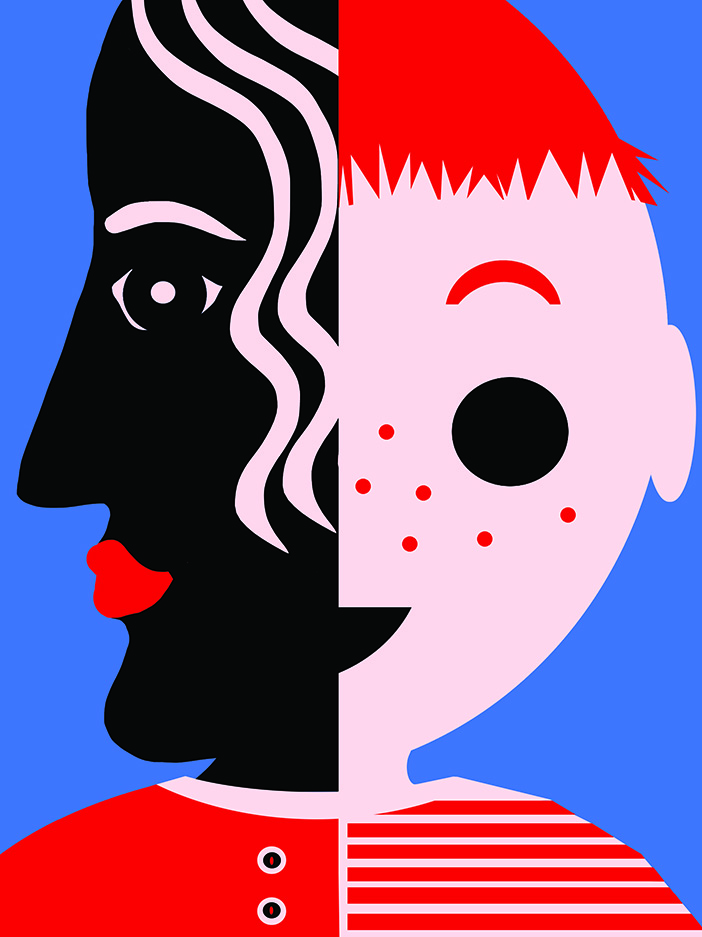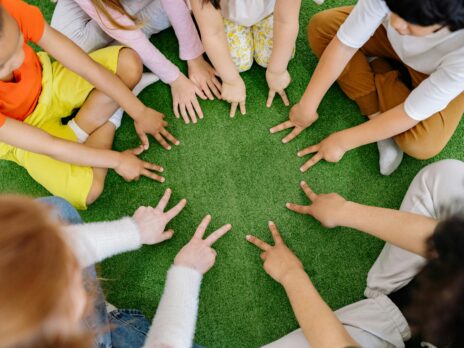In 2017, the journalist Angela Levin wrote a piece for the Daily Mail that prompted an outpouring from readers. Billed as a “taboo-breaking admission”, it was titled “My mother was a cruel and horrid woman” and described a lonely childhood marked by demeaning comments and acts of spite. When Levin told her mother that she was pregnant she was told: “I hope the baby is like you. Then you’ll appreciate what I had to put up with.”
In the weeks following the article’s publication, scores of readers wrote in with accounts of their own painful experiences. Many were women in their sixties and seventies sharing for the first time their true feelings about their mothers. In a feature reflecting on this correspondence, a Cambridge psychologist, Terri Apter, noted that many of the writers were the children of mothers “who really didn’t see themselves as having a choice in the matter”. This was a generation for whom marriage and children were simply assumed. Had they been able to choose, Apter suggested, they might have “spared their children a life of suffering”.
I found these articles coming to mind while reading Childless by Choice: The Meaning and Legacy of a Childfree Life, a compelling memoir in which Helen Taylor, now in her seventies, describes her life without children, one filled with teaching, writing, travel, friendship and love. While Taylor’s own mother – to whose memory the book is dedicated – was not unkind, she was, Taylor recalls, “an intelligent but sad and bitter woman” who “always seemed exhausted”. Taylor enjoyed a different path, fulfilling her academic potential through higher education, setting up the first women’s studies course at Bristol Polytechnic and winding up as head of English at Exeter. She threw herself into the Women’s Liberation Movement in the 1970s and found an ideal partner who shared her desire to remain childless. She describes a rich life, one that was partly a reaction to her own mother’s predicament. From childhood, Taylor was regularly reminded that children were “a burden and a problem, and if I were wise, I would never have any”. Life without children, her mother’s comments suggested, would be “blissfully unproblematic”. Taylor’s conversations with other childless women lead her to the conclusion that this experience is not unusual. She uncovers “a childhood pattern of unhappiness, maternal reluctance or neglect, which led them early on to resolve never to have children of their own”.
Taylor is of the baby-boomer cohort, and acutely aware that she belongs to the first generation able to opt for a life without children thanks to the introduction of the contraceptive pill to the NHS in 1961 and the liberalisation of abortion laws in 1967.
But this demographic was more likely to have children, and earlier in life, than any other since 1920. More than half of women born in 1946 had a child before the age of 24. Fewer than one in ten had no children at all. And so, at a time when it was easier than ever not to have children, Taylor found herself more in the minority than the generation that preceded hers.
Despite the growing prevalence of childless (or child-free) women – the Education Secretary, Bridget Phillipson, is the latest figure to express alarm about the perilously low birth rate – the stigma endures. There is still, Taylor notes, a tendency to regard childless women (at least those unable to boast of lucrative careers, strong relationships and comfortable homes) as “unnatural, freakish, pitiable or child-hating”. And childless writers hit back with defiance: “The conventional wisdom is that I must be broken by my barrenness, executing a crazed tarantella to the dying beat of my biological clock,” wrote Hannah Betts in the Times last year. Mothers who vaunt their choice are “forever lamenting” their lives, she observed. “Call me a spoilt bitch, but I am not jumping at the opportunity to be a sleepless, sexless, career-frustrated drone.” On social media, young women can be found documenting the joys of a child-free life. “Here’s what your Saturday morning looks like when you’re single at 29 and you don’t have a kid running around the house,” one American podcaster, Julia Mazur, announced in a viral TikTok post a couple of years ago. Beginning with a hungover lie-in, the clip documents a day spent learning how to make shakshuka and watching TV. The fact that Mazur became the victim of abusive comments (she told Rolling Stone that she had been told she deserved to die alone and should kill herself) is a reminder that a child-free life attracts active hostility, not just pity and condescension.
Picking up Taylor’s book, I had expected to encounter a lively defence of the child-free life – an encomium to the joys of freedom from the constraints of motherhood. I recalled the Sex and the City boxsets I had blitzed my way through in the early 2000s, and the list Carrie Bradshaw fired off when considering the advantages of childless life with a glamorous Russian (“Him, sex and travel. Comfort, love and extraordinary adventures”). I was unprepared for the more nuanced, searching and occasionally melancholic tone of Childless by Choice. “My tale is not tragic – though it contains bewilderment, regret and sorrows, as well as happiness and fulfilment,” Taylor writes in the preface. “There are doubts and ambivalences I have never really confronted, and for the sake of younger women and my contemporaries who share such feelings, I’m going to try to unpack them.”
What follows is a candid probe into these ambivalences. At moments, doubt comes close to regret, but clarification is usually added. Taylor first felt “twinges” of it in her fifties, while helping to care for her disabled mother and wondering who might eventually do the same for her. While observing families on the beach on holiday in Corsica she found herself surprised to sense what she might have missed. This was not, she stresses, a case of being an “emotional wreck”, but of becoming aware “of the limitations of my choice, and the narrow range of my human interactions”.
As she looks back on decades in which she had scant contact with the daily lives of children, a recurring theme emerges: that to remain childless is to exist on the fringe, “an observer of others’ family lives”. At times this idea is delivered as a warning. If you are not a parent, Taylor suggests, “you will be outside (or can opt out of) most of those networks that are at the heart of our family-oriented society”. The “weighty task of bringing new life into the world” is, she contends “the most important anyone takes on”. The childless are “out of the adult part of the loop”. She is fascinated by the examples of childless writers who used “babyish” language with their partners and writes of other childless women who recognise her feeling of having “not really grown up”. “A busy work life is no permanent substitute for family or community, especially as it winds down into retirement,” she cautions at one point.
I found Taylor’s honesty impressive, but would hesitate before giving the book to a childless friend. First, I suspect that some of the more aggressive pro-natalists would leap on certain passages as confirmation of their warnings about remaining child-free. The reaction to Mazur’s harmless TikTok and JD Vance’s dismissal of “childless cat ladies” are examples of the vindictiveness within this movement. Those getting caught in the crossfire include those who have lost babies, struggled with fertility or finding a partner – all scenarios that Taylor acknowledges.
Second, some of her confessions can be morbid. Reflecting on the suicide of another female academic, she wonders about her own old age, and envies those who die surrounded by children and grandchildren. Within the melancholy, I also came to find her candour, and her ability to sit with ambivalence and doubt, extremely appealing. It’s reflected in her willingness to end sections without a neat resolution, to leave us with troubling questions for which she refuses to provide a pat answer.
I was also impressed by her readiness to confess to past failings or misunderstandings. She admits to having found children “rather terrifying”, unsure of how to interact with them, and certain that they find her “either boring or a little frightening”. Despite having gained an unexpected stepson later in life and expressing regret for having failed to get to know better the children of her peers, you get the sense that children will always remain a slightly mysterious, difficult “other” to Taylor. There are stories of friendships strained by the different paths taken, of distance growing as the years pass by. At times, I found myself wanting to appeal against some of her harsher self-judgements. On a WhatsApp group with two female friends, she confesses to feeling on occasion like “a spectre at the feast, writing rather solemnly about my adult-focused daily routine and pleasures in a way that lacks the special joy, humour and intimacy of relations with the very young”.
Her descriptions of the road not taken are nonetheless quietly amusing in their honesty, and there are moments when the joys of her child-free life come into view, including a “wonderful” Christmas spent with her husband having a picnic of wine and chocolate on the riverbank. Ambivalence is not limited to the childless, she notes – friends with children tell her they have conflicted feelings about their own choices, and some jealousy towards her child-free state. Caution about simplistic paeans to the child-free life is balanced by an unapologetic affirmation that “your legacy is your own life”.
As a mother of two small children, I finished the book grateful for Taylor’s empathy for women across the divide. “I may find all your family photos a bit overwhelming, but I’ll help you upstairs with the baby buggy, babysit for you and also argue on your behalf with politicians,” she writes touchingly in her conclusion. Bearing in mind her observation that “one can be a mother without having children”, I detected something quite maternal about her desire to help young women “think very hard before deciding against motherhood” and to offer her own life experiences as material to be weighed in the balance – despite knowing that this may be considered “impertinent”.
Taylor is experienced, wise and mature, yet still open to seeking out further insight into her own choices and those of others. I was struck by her decision to quote from the cartoonist Tim Kreider, who has suggested that the childless constitute “a kind of existential vanguard, forced by our own choices to face the naked question of existence with few illusions, or at least fewer consolations… forced to prove to ourselves anew every day that extinction does not negate meaning”. Taylor exemplifies this sort of forensic, fearless thinking, offered in a spirit of generosity to future generations.
Childless by Choice: The Meaning and Legacy of a Childfree Life
Helen Taylor
Whitefox, 256pp, £16.99
[See also: Oasis are the greatest Irish band of all time]
This article appears in the 09 Jul 2025 issue of the New Statesman, The Harbinger






